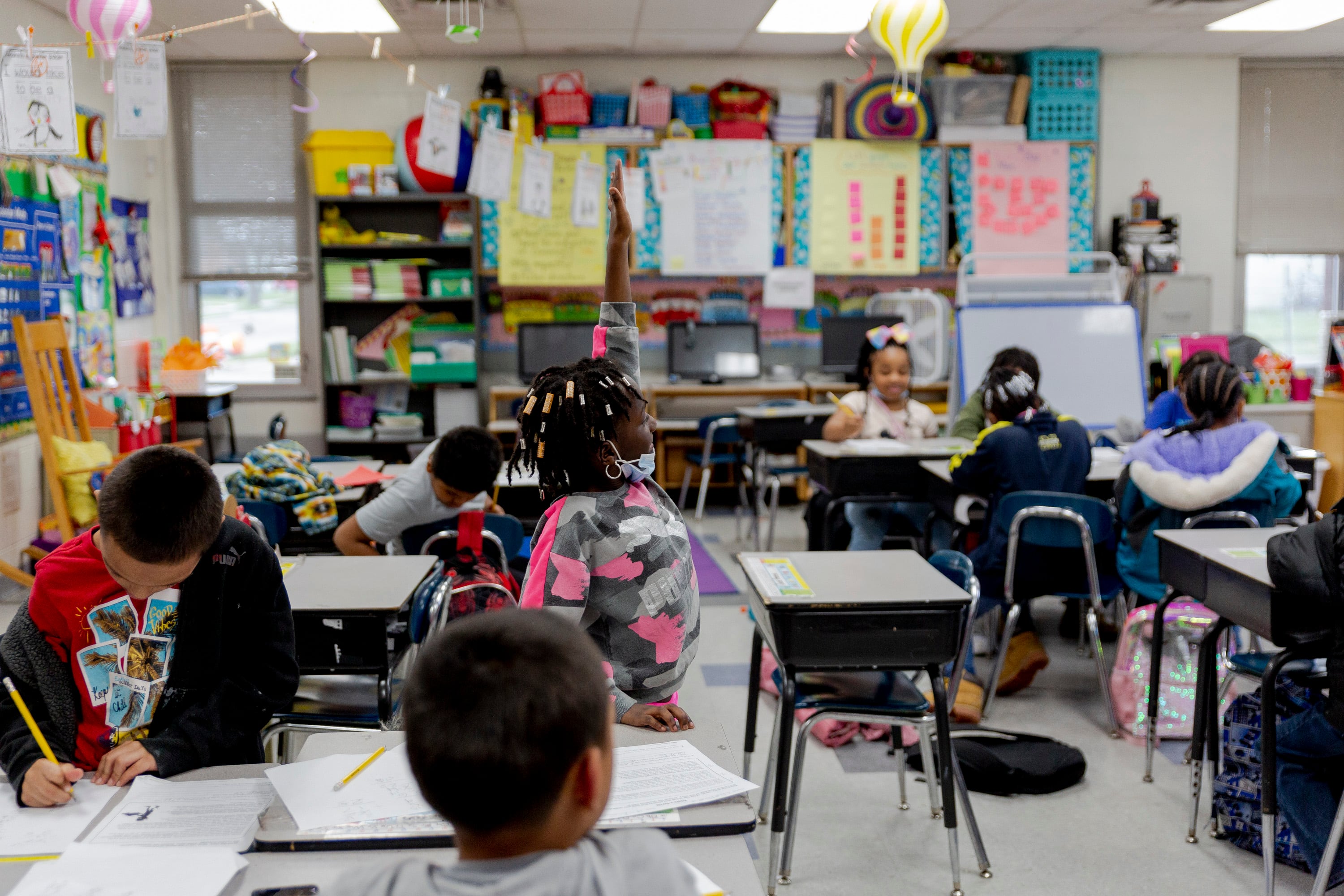Another round of education legislation is headed to Gov. Gretchen Whitmer’s desk after Michigan lawmakers passed a budget bill that will provide debt relief for some of the most financially troubled districts in the state, as well as a bill that will change how teachers are evaluated.
The bills are further illustration of how Democrats’ rise to power this year in the Michigan Legislature has changed the education landscape in the state. In addition to the bills that passed this week, the Democratic majority has halted key GOP-backed education initiatives of the past decade and a half, such as state laws that required schools hold back some struggling third graders, required the state to assign letter grades to schools, and weakened teacher bargaining rights.
The bills were forwarded to Whitmer during a busy week for education news in Michigan: Lawmakers in the House discussed a new bill that would require charter schools to post teacher salary information on their websites. A new report on the deadly Oxford High School shooting in 2021 left some asking for more information. And state officials released new information about school districts providing free meals for students.
Here is more on the new legislation:
Struggling school districts get debt relief
Advocates for months have pushed lawmakers to provide debt relief for a handful of school districts, several of which had been under emergency management by the state. That paid off Thursday when lawmakers approved a supplemental budget bill that in part will whittle down debt for districts in Benton Harbor, Pontiac, Muskegon Heights, and Ypsilanti.
“Fixing the debt is going to help out everybody,” Seven Green, a fifth grader in Benton Harbor, said in a statement from the Michigan Education Justice Coalition, which had pushed for the debt relief. “It helps the teachers, the staff, the buildings, and the students would get more attention.”
Also benefiting are homeowners in the former Inkster Public Schools district, which was dissolved by the state in 2013 because of its massive debt. Even though the district closed, taxpayers were on the hook for millions of dollars in debt. Sen. Dayna Polehanki, a Democrat from Livonia, said in testimony Thursday that without the aid, the debt wouldn’t be paid off until 2032. The supplemental bill erases that $12 million debt.
“My constituents in Inkster need this relief, they deserve this relief, and if they choose to try and resurrect their school district, it can’t happen without remaining debt forgiveness,” Polehanki said.
Here’s how the debt relief will benefit the other districts:
- The Pontiac School District will receive up to $18.4 million to pay an outstanding emergency loan balance.
- Benton Harbor Area Schools will receive up to $10 million to pay an outstanding emergency loan balance.
- The Muskegon Heights School District will receive up to $31.3 million to pay an outstanding emergency loan balance, outstanding school bond loan fund balances, school loan revolving fund balances, associated general obligation unlimited tax debt, or costs associated with the payoff of debt.
- Ypsilanti Community Schools will receive up to $5.5 million to pay the outstanding long-term limited tax debt held by the Michigan Finance Authority.
- The former Willow Run Community Schools (which consolidated with the Ypsilanti district in 2013) will receive up to $19.36 million to pay outstanding school bond loan fund balances or school loan revolving fund balances.
The bill passed in the House and Senate along party lines, with Republicans opposed to the spending plans.
A statement from the Benton Harbor district described the debt relief as a “vital lifeline.”
“This relief is not just a financial reprieve but a moral support to our entire school community,” Superintendent Kelvin Butts said in the statement. “It stands as a testament to the faith that the State of Michigan and our local representatives have in our future.”
Millions allocated to ensure safe drinking water in schools
Schools and child care centers can get financial help from the state to ensure their drinking water is safe.
The supplemental bill that passed Thursday allocates $50 million for the purchase of drinking water filtration devices for schools and child care centers.
This comes just weeks after Michigan lawmakers passed new laws that Whitmer described in a statement at the time as protecting children. The laws now require schools and child care centers to install filtered faucets, develop a drinking water management plan, and conduct routine sampling and testing to ensure safe and accessible drinking water for children, the statement said.
Teacher evaluation legislation gets final passage
The Legislature this week passed a bill that would eliminate test scores as a factor in how teachers are evaluated. The bill passed along party lines, with Republicans opposed.
Current state law requires that student scores on standardized tests count for 40% of a teacher’s performance rating.
The bill that passed Wednesday eliminates that requirement and allows districts to use their own criteria for evaluating teachers, such as classroom observations, samples of student work, rubrics, and lesson plans.
Lori Higgins is the bureau chief for Chalkbeat Detroit. You can reach her at lhiggins@chalkbeat.org.







